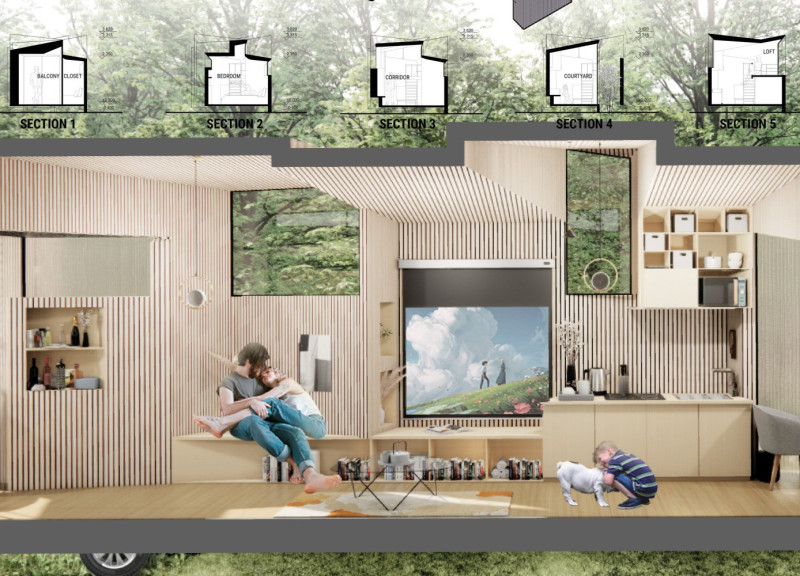5 key facts about this project
"Revival" focuses on the transformation of around 30 abandoned RVs and vans in Changting County, Fujian, China. Designed to serve as functional living spaces, it takes a practical approach to address urban decay and sustainable living by reusing neglected vehicles. The project not only repurposes these structures but also aims to invigorate the surrounding rural community.
Design Concept
The core idea revolves around sustainability and resourcefulness. The design reclaims vehicles that have run their course or have been left behind due to financial struggles. By turning these abandoned RVs into homes, it minimizes waste and highlights the potential for innovative living solutions in the context of rural revitalization.
Integration of Light and Space
A prominent feature of the design is the increase in the window-to-wall ratio. Larger windows allow more natural light to fill the interiors. This not only enhances the living environment but also establishes a connection to the outdoor landscape. The influx of light creates a warm and inviting atmosphere, contributing to energy efficiency and comfort for the residents.
Modularity and Customization
Replaceable modules play a crucial role in the overall design. These components are both prefabricated and assembled on-site, allowing for personalization of living spaces. The ability to adapt the layout supports various lifestyles and changing needs, making the homes versatile and practical. This approach encourages a dynamic living environment where arrangements can be modified as required.
Mobility and Structure
Mobility is another essential aspect of Revival. The design incorporates lightweight structures and detachable modules, enabling the RVs to be moved if necessary. This provides flexibility, especially in rural settings where land use and community dynamics can shift.
The choice of polycarbonate panels enhances transparency and lightness. This contributes to a sense of openness within the homes. Steel framing adds durability and stability, ensuring that the remodeled RVs can support different living functions effectively.


















































